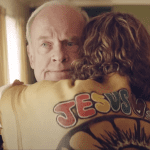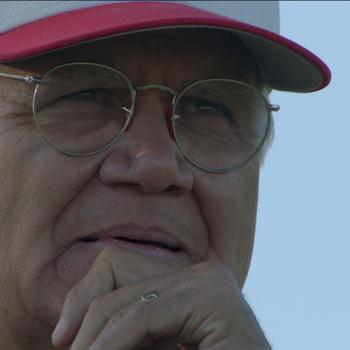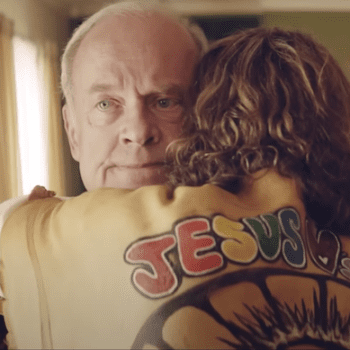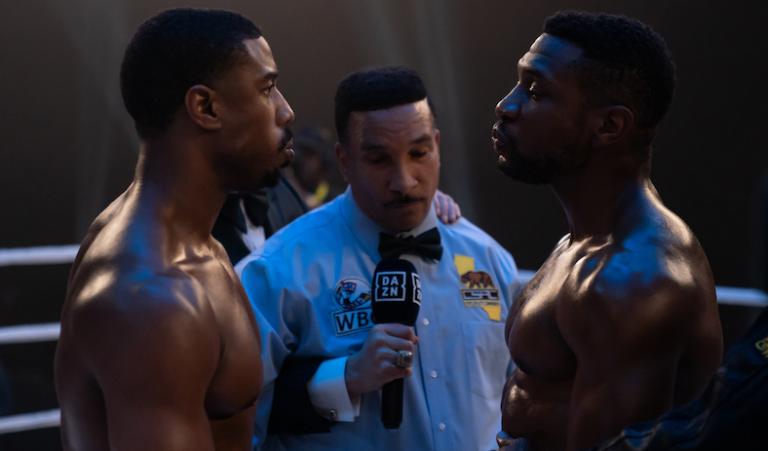
Ever since Rocky Balboa stepped into the ring against Apollo Creed in 1976, the Rocky/Creed movies have often held just a teensiest whiff of the Gospel (with a dollop of the old Protestant work ethic).
Sure, they’re not advocates of turning the other cheek. But they do stress a lot of messages straight from Sunday school: Turn away from the idols of this world. Don’t get tied down by worldly pleasures. Don’t fixate on outward appearances (Rocky was almost always dwarfed by his opponents, and in most all of them our hero is an underdog); it’s what’s on the inside that counts.
The newly released Creed III, directed by and starring Michael B. Jordan, is in some ways a very typical Rocky/Creed movie. Our hero, Adonis Creed (Jordan), starts on top of the world, takes a mighty fall, suffers a bitter loss and once again steps into the ring—not only to face his opponent, but his own doubts and fears.
But in some ways, Creed III ups the spiritual ante. In this one, both Adonis and his opponent—the menacing Damian “Dame” Anderson—are fighting not just each other, but their own shared past.
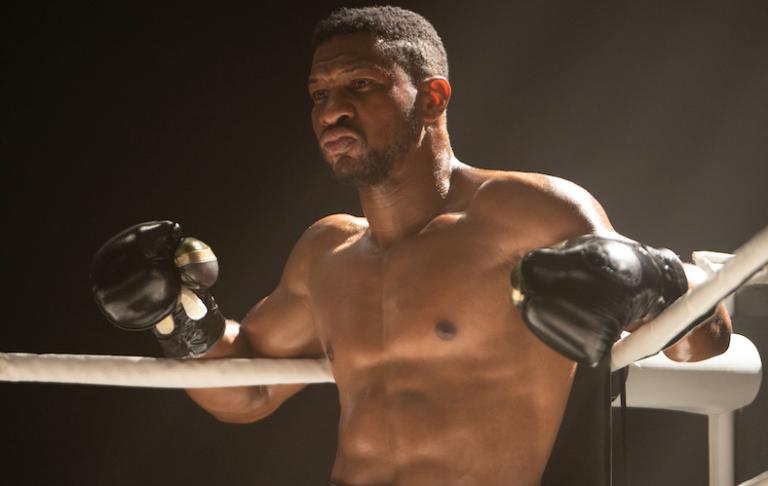
Round 1
Damian and Adonis were once friends way back in the day—Dame the streetwise elder and Adonis (Donnie, most call him) the tagalong kid. Back then, Dame was the fighter—a Golden Gloves prodigy with dreams of Olympic gold and a title belt. Donnie just carried Dame’s gloves.
But when Adonis spotted an old nemesis outside a convenience store, the boy started beating the guy up. And when things were about to get even more out of control, Dame came to Adonis’ aid and pulled out a gun. The police arrived seconds later. They saw the gun, saw Dame’s list of priors and sent him away for a long, long time. By the time Damian (played by the excellent Jonathan Majors) gets out, he’s old by boxing standards. But he still wants his shot at his dream.
Meanwhile, Adonis escaped prison and became a heavyweight champ. But by the time Damian’s out of prison, Adonis is out of the ring: He’s a boxing promoter now—Don King without the hair, someone quips. Moreover, the world heavyweight champion trains in Adonis’ own gym. He has the power to crown kings—or at least give ‘em a shot at the throne.
Damian knows all this when he shows up at Donnie’s gym. Donnie feels like he owes his old friend something—but a shot at the title? The business doesn’t work like that.
But in this case (and without giving the plot away), circumstances open a door. Not only does Dame get his shot, but the old man makes good on it. He fights angry. He fights dirty. And he’ll do anything to win. And when Donnie realizes that Dame has played him and embarrassed him, the old champ realizes he needs to step into the ring one last time—to try and humble this raging one-time friend of his.
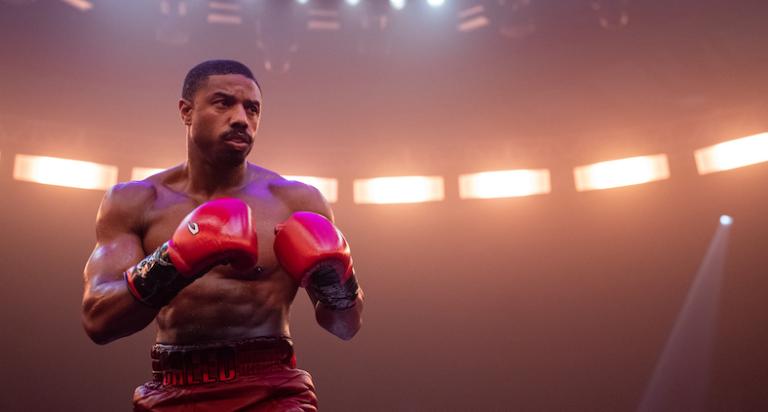
Round 2
In an online interview with members of the media (including me), Majors said that one of the movie’s primary themes was the “aspiration for freedom. Not just physical freedom, but mental freedom.”
I might add spiritual freedom to the list.
By the time most of the movie’s action takes place, Dame is technically free. He still wears an ankle bracelet (that needs to be taken off for his fight), but he proudly tells Donnie when they first reunite that he has plans—plans to pick up the pieces of his life and make something out of it again.
But in Majors’ capable hands, Dame is still a captive. He’s driven by the loss of all those years—taken from him, he feels, unfairly. He looks at Donnie and all his success—his beautiful home, his beautiful wife, his beautiful child—and he knows that could’ve been him. And he’s not just jealous of Donnie: He blames him. It wasn’t as if Donnie gave him the gun, but it doesn’t matter. Damian blames him all the same.
It’s like he’s living out an aspect of Titus 3:3: “For we ourselves were once foolish, disobedient, led astray, slaves to various passions and pleasures, passing our days in malice and envy, hated by others and hating one another.”
And indeed, the author of Titus is right. We ourselves were once all those things. Even now, we can still all be those things. In certain times in our lives, few temptations are greater than to give in to malice and envy—to blame others for the things that have gone wrong in our lives … or gone wrong in ourselves.
Dame looks at Adonis and thinks that the guy has everything. But Donnie is, in his own way, imprisoned himself—haunted by his past and his guilt. He’s never told anyone about his checkered time with Damian. Now Dame’s here, and growing more malicious by the week, it seems. Sure, Damian’s a physical threat to Donnie. But more than that, he’s an existential threat: A measure of shame and guilt he thought he’d buried. He sees his past with Dame as a sin against a brother—and one that for nearly two decades has gone unconfessed.
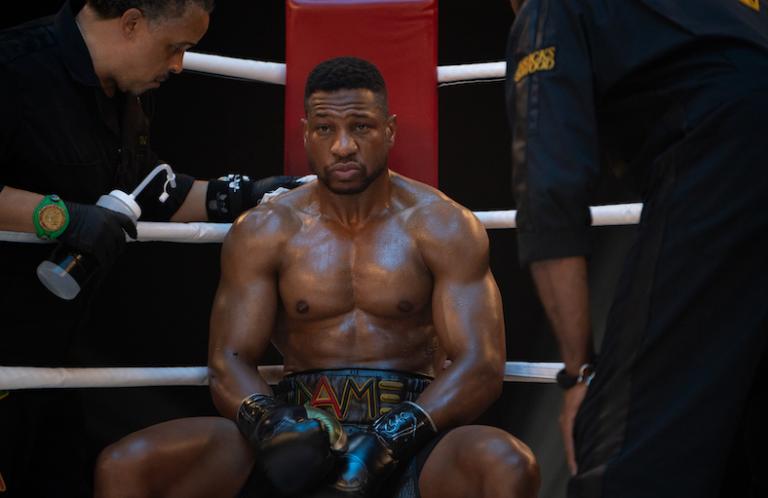
Round 3
The climactic fight itself becomes far more than just a physical struggle: It is, indeed, a spiritual one—the dimensions of which are magnified by director Jordan’s use of surreal imagery. At some point in the fight, the fans vanish, and the two of them are alone—joined at times by prison bars or jailhouse mattresses, visual nods to their mutual imprisonment.
“The truth will set you free,” John writes in his Gospel. And we Christians are encouraged to confess our sins, face our pasts and move boldly and brightly into the future God always intended for us. That’s hard to do—even when our pasts aren’t literally punching us in the face.
But in Creed III, that’s ultimately what both are forced to do: Face their collective past.
Damian’s one of the most sympathetic “villains” in Rocky/Creed history—a man whose own past stole his future and warped his present. And it’s interesting, I think, that the guy’s name is Damian.
For many of us, it has echoes of the word demon. If we remember the Omen movies, where Satan’s own kid was named Damian, that connection is even more tightly connected.
But the name is a derivative of a Greek word (Damianos), which can mean “conquer” or “overcome.”
It’s a fitting name, and you could read the name as a threat: Damian seeks to conquer his old childhood friend.
But I think the movie leans into a different sense of the word: Damian ultimately is called to overcome not his boxing opponent, but his own anger and envy. He needs to conquer himself—and thus, find freedom. Real freedom. And he needs a little tough love to do it.
And for Christians, that sounds pretty familiar, too. The Bible tells us over and over that we must die to ourselves and live for something higher and better. That only by doing so can we escape our own prisons and set ourselves free.
Sure, some might think that this is all a stretch. I don’t think that Creed III a single explicit nod to faith or religion. But to me, the idea of freedom—spiritual freedom—is key to this film. And that makes it all the more compelling.


